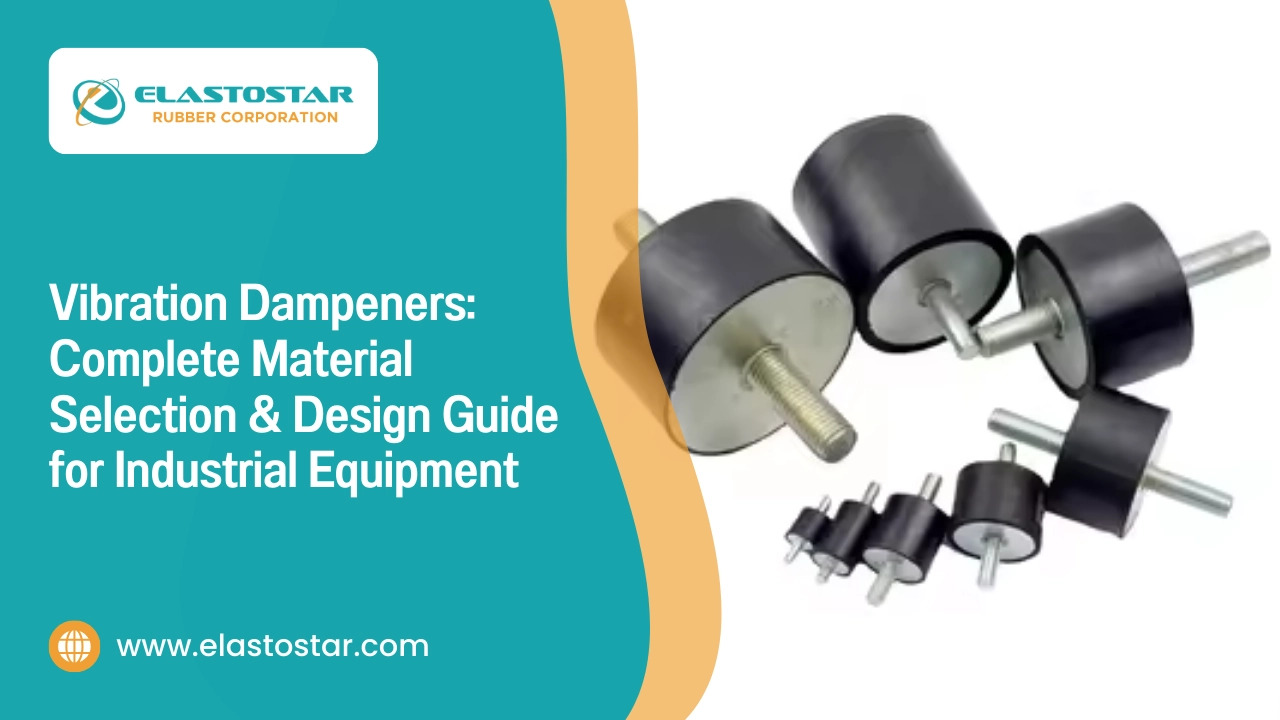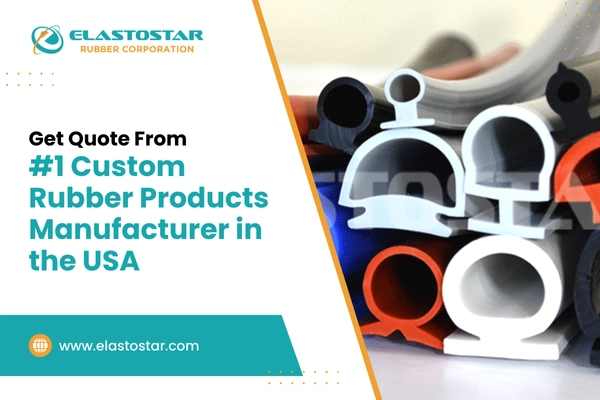Selecting the right silicone tubing—whether platinum cured or peroxide cured—can greatly influence performance, durability, and compliance in various industries. For applications in medical, pharmaceutical, and food processing, platinum cured silicone offers high purity, flexibility, and transparency, meeting the strict standards required in these fields. In contrast, peroxide cured silicone is appreciated for its cost-effectiveness and durability, especially in industrial settings where purity is less essential but high-temperature resilience is important.
Understanding the differences between these two curing processes is essential for making the best choice for your specific needs. In the following sections, we’ll explore the unique characteristics, benefits, and limitations of each type of silicone tubing.
From mechanical properties and sterilization compatibility to application-specific suitability, this guide will clarify which option is most appropriate for your industry and usage requirements.
Table of Contents
What is Silicone Curing and Why is it Important?

Silicone curing is the process of transforming raw silicone into durable, flexible, and high-performance silicone tubing through either platinum curing or peroxide curing. Platinum cured silicone uses platinum as a catalyst, creating platinum cured silicone tubing that is highly pure, flexible, and transparent—qualities that make it ideal for medical, pharmaceutical, and food applications where strict standards are needed.
In contrast, peroxide cured silicone uses organic peroxides to harden the material, offering a durable and cost-effective option for industrial applications where purity is essential.
Understanding these two curing types—platinum curing and peroxide curing—is key for selecting the right tubing based on application demands.
To learn more about specific industry benefits of silicone products, check out our guide on the Top 7 Benefits of Using Metal Detectable Seals & Gaskets.
Exploring Peroxide Cured Silicone Tubing
Peroxide cured silicone tubing is a popular type of silicone rubber tubing made with organic peroxides as a curing agent. This process results in rubber silicone tubing that offers excellent durability and heat resistance, making it ideal for various industrial applications.
Here’s a closer look at the benefits and considerations of peroxide cured flexible rubber tubing.
- Durable and Heat-Resistant: Peroxide cured silicone tubing is known for its strong resistance to high temperatures, making it suitable for demanding industrial environments.
- Cost-Effective Solution: Compared to platinum cured silicone, peroxide cured options are often more affordable, making them practical for applications where budget is a priority.
- Less Focus on Purity: While peroxide curing produces durable cured silicone, it may release slight by-products, which could affect purity. This makes it better suited for non-sensitive applications where absolute purity isn’t critical.
- Ideal for Industrial Use: Industries like automotive, electrical, and general manufacturing benefit from peroxide cured silicone rubber tubing, as it withstands stress, heat, and exposure to tough conditions.
Peroxide cured silicone tubing provides a reliable option where durability and flexibility are essential, while purity remains a secondary concern.
Advantages of Platinum Cured Silicone Tubing for Medical and Industrial Use

Platinum cured silicone tubing is widely recognized for its purity, flexibility, and strength, making it an ideal choice for both medical and industrial applications. The platinum curing process uses platinum as a catalyst, resulting in silicone tubing that meets the strictest quality standards.
- High Purity and Biocompatibility: Platinum curing creates platinum cured silicone tubing that is free from by-products, ensuring a high level of purity. This makes it especially suitable as a medical silicone tube, where material purity and biocompatibility are essential for patient safety.
- Excellent Flexibility and Durability: The platinum curing process produces silicone tubing with exceptional flexibility and resilience, which helps it hold bending and movement without cracking or losing shape, a valuable feature in both medical and industrial settings.
- Heat and Chemical Resistance: Platinum cured silicone is highly resistant to extreme temperatures and many chemicals, making it reliable for applications where the tubing may be exposed to harsh conditions or frequent sterilization.
- Enhanced Clarity and Transparency: Silicone tubing platinum cured is often clear and transparent, allowing for visual inspection of flow and monitoring. This is particularly useful in medical applications and in industries where flow visibility is important.
- Low Extractables: The platinum curing process minimizes extractables and leachables, which means platinum cured silicone tubing won’t release unwanted substances when in contact with sensitive materials or fluids, maintaining integrity in both medical and industrial applications.
With its superior purity, strength, and resistance to extreme conditions, platinum cured silicone tubing is an excellent choice for applications demanding high-quality and reliable performance.
Peroxide vs. Platinum Cured Silicone Tubing Comparison Table
| Feature | Peroxide Cured | Platinum Cured |
| Purity | Contains slight by-products, less pure | High purity, no by-products |
| Cost | More affordable | Higher cost |
| Flexibility | Durable but less flexible | Highly flexible and resilient |
| Transparency | Opaque or semi-clear | Clear and transparent |
| Heat Resistance | Good resistance | Excellent, ideal for sterilization |
| Chemical Resistance | Moderate | High |
| Applications | Industrial, automotive | Medical, food, pharmaceutical |
| Extractables | Higher, may release leachables | Low, safe for sensitive applications |
Choosing the Right Silicone Tubing for Different Applications

Selecting the appropriate silicone tubing depends on specific industry needs, including purity, durability, and temperature resistance.
Here’s how platinum cured silicone tubing and peroxide cured tubing differ across common applications.
- Medical and Pharmaceutical Applications
- Platinum cured silicone tubing is highly recommended for medical use due to its purity and low levels of extractables.
- Silicone medical tubing offers biocompatibility, making it suitable for surgical and pharmaceutical applications where patient safety is essential.
- When using a medical silicone tube for drug delivery or sensitive fluid transfer, choose tubing with no by-products to prevent contamination.
- Food and Beverage Applications
- For food processing, food safe tubing is required to ensure there are no unwanted additives or leachables in contact with food and beverages.
- Platinum cured silicone tubing is ideal here due to its high purity and compliance with food safety standards.
- This tubing also offers transparency, allowing for visual inspection during food handling processes.
- Industrial and High-Temperature Applications
- Silicone tubing, known for its high-temperature resistance, is widely used in industrial settings where exposure to heat and harsh conditions is common.
- Peroxide cured silicone tubing is typically more affordable and can withstand high temperatures, making it suitable for industrial applications that don’t require medical-grade purity.
For applications that require strict adherence to food safety standards, read about the benefits of Metal Detectable O-Rings in the Food Industry, and how these products can improve quality control and safety.
Each application has its own demands, and choosing between medical silicone tube and food safe tubing or high-temperature silicone tubing ensures optimal performance in your specific environment.
Sterilization Effects on Peroxide Cured and Platinum Cured Tubing
Sterilization methods can impact silicone tubing differently depending on whether it’s platinum cured or peroxide cured.
Here’s how each type holds up under common sterilization techniques.
- Autoclaving (Steam Sterilization)
- Platinum cured silicone is highly resistant to heat and steam, making it suitable for repeated autoclaving without losing quality.
- Peroxide cured silicone may withstand steam sterilization but can degrade over time, making it less ideal for frequent autoclaving.
- Gamma Radiation
- Silicone medical tubing made from platinum cured silicone handles gamma radiation well, maintaining its flexibility and purity.
- Peroxide cured tubing can become brittle and lose its durability when exposed to gamma radiation.
- Ethylene Oxide (EtO) Sterilization
- Both platinum cured and peroxide cured silicone perform well under EtO sterilization, making it a suitable choice for applications where heat-sensitive sterilization is needed.
Each sterilization method affects cured silicone differently, so selecting the right type of silicone tubing is crucial for maintaining performance in sterilized environments.
Why Choose Elastostar Rubber Corporation for Your Silicone Tubing Needs?
At Elastostar Rubber Corporation, we’re dedicated to delivering high-quality silicone rubber tubing that meets the diverse needs of our clients. With our expertise in platinum curing, we produce platinum cured silicone tubing free from by-products, making it ideal for medical, food, and pharmaceutical applications requiring the highest purity.
We offer a wide range of flexible rubber tubing solutions and provide customization options to fit unique specifications, ensuring that each product is the perfect match for its intended use. Our commitment to quality is backed by ISO certifications, so you can trust that our tubing meets rigorous industry standards.
When you choose Elastostar, you’re choosing a team that prioritizes quality, precision, and customer satisfaction in every product.
Tips for Selecting the Best Silicone Tubing for Your Needs
Choosing the right silicone tubing depends on your specific requirements.
Here are a few quick tips.
- Consider Purity Needs: If you need tubing for sensitive applications, like medical or pharmaceutical use, a platinum cured silicone tube is ideal due to its high purity and biocompatibility.
- Think About Flexibility and Durability: For applications needing extra flexibility, silicone rubber tubing offers great resilience and is easy to handle, even under stress.
- Evaluate Heat and Chemical Resistance: For industrial settings that involve high temperatures or chemicals, compare platinum silicone vs silicone options to find the right balance of strength and resistance.
- Match Tubing Type to Application: For medical uses, a medical silicone tube is essential to meet industry standards, while other uses may not require the same level of purity.
By considering these factors, you can select the best silicone tubing to ensure optimal performance for your needs.
Recommended Reads
- Advantages of Platinum Cured Silicone Tubing
- Why Medical Industry Preferred Silicone Tubing
- Know About the Usage of Food Grade Silicone Tubing

Conclusion
Choosing the right silicone tubing comes down to understanding your application’s specific needs. Platinum cured silicone tubing is best for applications requiring high purity and flexibility, such as in medical and food industries. On the other hand, peroxide cured silicone offers a durable, cost-effective solution for industrial use where purity is less critical.
Whether you need silicone rubber tubing for high-temperature environments or cured silicone for sensitive applications, selecting the right type ensures reliable performance and safety. By weighing the unique benefits of each option, you can make the best choice for your industry requirements.
FAQs
1. Is Platinum Silicone Better?
Platinum cured silicone is often considered better for applications requiring high purity, flexibility, and durability. Unlike peroxide cured silicone, it has no by-products, making it ideal for medical, food, and pharmaceutical uses where safety and cleanliness are crucial.
2. What is Peroxide-Cured Silicone?
Peroxide-cured silicone is a silicone that uses organic peroxides as curing agents, making it durable and cost-effective. It’s a good option for industrial applications where high-temperature resistance is needed, but it may release by-products, making it less suitable for sensitive applications.
3. What is Platinum Cured Silicone Used For?
Platinum cured silicone is commonly used in industries requiring high-purity materials, such as medical, pharmaceutical, and food processing. It’s also used for silicone tubing in high-precision applications due to its clarity, flexibility, and resistance to contaminants.
4. How Long Does Platinum Cured Silicone Last?
Elastostar’s platinum cured silicone tubing is designed for durability. It resists degradation from temperature changes, chemicals, and UV exposure, allowing it to perform consistently over time, even in challenging conditions. With proper care, our platinum cured silicone products can last for many years, providing reliable quality in every application.
5. Does Peroxide Degrade Silicone?
Peroxide curing can lead to slight degradation in certain environments, such as prolonged exposure to UV light or extreme heat. However, our platinum cured silicone tubing is more resistant to these factors, offering enhanced stability and longevity. At Elastostar, we ensure that each product’s curing method matches its intended use to provide optimal performance.
6. Which Silicone is Stronger?
Platinum cured silicone is generally stronger, offering better tensile strength, flexibility, and resistance to environmental stress. This makes it suitable for rigorous applications in medical and industrial settings. Elastostar’s platinum cured silicone tubing provides unmatched strength and resilience, making it a top choice for high-demand applications.



